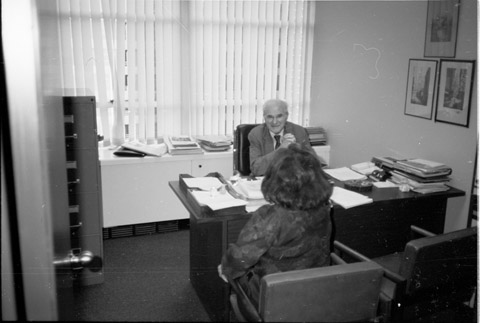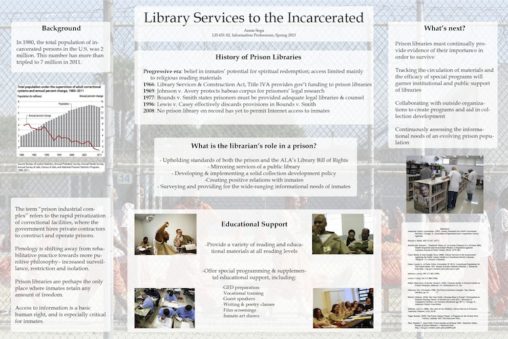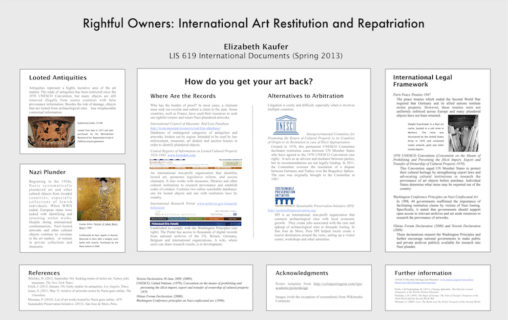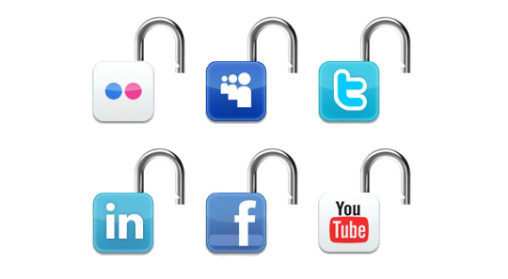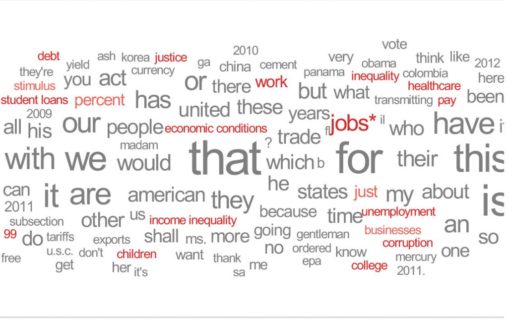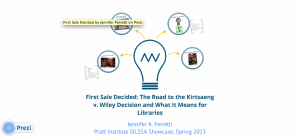Category: 2013Page 3 of 4
In this lightning talk, Olivia Mueller will discuss the design and technology work that went into creating the Oral History Project for the American Jewish Joint Distribution Committee (JDC). The JDC is a worldwide humanitarian relief organization created during World War I to provide relief to Jewish communities in Europe. The JDC was instrumental during WWII in getting Jews out of Nazi-occupied Europe, and resettling Jews after the war through Displaced Persons Camps. In this class project, students worked to transform a collection of analog oral histories into a web-based digital archive. Olivia will focus most closely on the design and technology aspects.
A series of instructional videos created by students in LIS 619: International Information Sources for the United Nations Dag Hammarskjöld library.
The relationship between the United States and Mexico has always been a complicated and tumultuous one concerning land, people, and culture. Many parts of the United States that we know as the west coast and southwest today, at one point used to belong to Mexico. Today, it seems very few people seem to realize this. One of the domestic issues in politics today regards immigration and border patrol around Mexico. However, Mexican immigration to the United States is a more recent phenomenon from the last twenty years. The fact of the matter is that certain parts of the United States were Mexico at some point, and a lot of the people who were living in those territories were already Mexican people. In many ways, the story of the Mexican worker in the west coast is parallel to other stories of imperialism, however, the story of Mexican workers, in particular the bracero program seems to be a forgotten chapter in the history of the United States.
This lightening talk will address Google Scholar’s Legal Documents Database and its place within the historical development of open access to legal information. In addition, unlike the vast majority of online legal research databases, Google Scholar is created with non-expert users in mind, although it is not clear whether this will prove to be a benefit or detriment to the legal and legal information professions.
The primary purposes of a library include collecting information, and then organizing that information or knowledge in its collection into some systematic order so that it can be easily retrieved and used. Tools used to organize knowledge include classification systems, controlled vocabularies, and the library catalog. It is the thesis of this paper that the implications of knowledge organization systems should be further investigated as purposive human activities that influence people’s understandings and perceptions. In this regard, the works of Michel Foucault on discourse and power are helpful in examining knowledge organization practices. Discourse can be defined as a set of rules, usually expressed through language and behavior, which limits what can be said and thought about a phenomenon, and how it can be analyzed and evaluated. Discourse shapes knowledge, defines what is “normal,” and so is a form of power and influence when embedded in institutional practices. Despite the application of Foucault’s theories in LIS scholarship, there remains a need to analyze the library as an institution for discursive activity. One way to start such an analysis is through an organizational ethnography of knowledge organization activities that take place in libraries.
The growth of online publishing is intended to accelerate academic research, yet corporate business models of database vendors and publishers are hindering the proliferation of scholarship. This presentation explores recent conflicts with attention to actions and positions of the academic community.
An examination of the U.S. Department of State’s online social media use to conduct outreach to foreign populations
This paper focuses on the first sale doctrine and its importance and impact on the daily operations of lending libraries, used book businesses, and companies like Netflix, Inc. and eBay, Inc. Federal court cases are reviewed, including the recent Supreme Court case Kirtsaeng v. Wiley (2013).
As Big Data has emerged as the basis of modern research, fittingly it has also become apparent in research libraries. Data centers equipped with data librarians are becoming more prevalent. Information professionals serve as stewards of access and instruction to information resources, the tidal wave of datasets is no exception. Data librarians have emerged as specialists on data resources, tools and also data management plans that are required for research grant proposals. With more publically accessible datasets from government funded research, privacy ethics can fall on scientists and funding agencies. Librarians are poised, and in some cases required, to be part of the data revolution. Despite the specialty area of data librarianship, the information profession field should be aware of growing data-based research and the issues involved
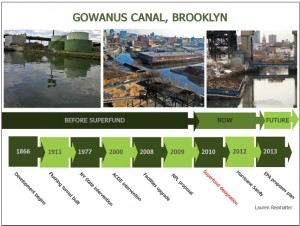
Almost immediately upon its completion in the 1860’s, the Gowanus Canal in South Brooklyn became known for its contamination. In 1887 the New York Times reported that the Canal “was pronounced to be offensive and dangerous to the health of the people presiding in the vicinity”. This “water highway” was purported to carry the power of the sea right into the city, bringing with it industrial capabilities; but in fact, the dead-ended canal was a semi-stagnant body of water without tidal flow to flush its contents out into Gowanus Bay.
On March 4, 2010, after over 100 years of degeneration and political paralysis, the Gowanus Canal was finally designated as a Superfund Site by the Federal Government. This designation allowed the Environmental Protection Agency (EPA) to investigate contamination at the site and develop a remedy. As recently as March 2013, the EPA finalized a $500 million plan to dredge and cap the Gowanus Canal; however, the cleanup has yet to begin.
In recent times, graphic novels have risen in popularity and prestige. Librarians are in the perfect place to promote their appeal and transformative power. And helping readers find them helps the librarians save their space!
This poster uses Everett Rogers’ (1995) concept of innovation diffusion to illuminate the adoption of e-books among library and information science students at the Pratt Institute, an institution that currently does not offer this technology in its academic libraries. A study was conducted in fall 2012 as part of Dr. Irene Lopatovska’s Research Methods course to determine how Pratt SILS students use e-books for academic purposes. To collect quantitative data on e-book use among this population, a survey was sent out via the SILS listserv, while qualitative data was gathered in focus groups and through individual interviews. The results of this study show that, despite not having access to e-books through their institution’s library, SILS students actively circumnavigate barriers of access to use e-books for their coursework and research. This becomes a useful case study for technology adoption when framed with the concept of innovation diffusion (Rogers, 1995). The use of e-books for academic purposes can be understood as an innovative practice that many SILS students regularly engage in despite lack of institutional support. Participants’ discussions of the reasons that they use e-books demonstrate Rogers’ characteristics of innovations that lead populations to adopt them more readily: relative advantage, compatibility, complexity, trialability, and observability.This poster uses these aspects of innovations to visualize how e-books are currently being adopted and to suggest students’ growing needs for digital resources.
Theft of unique items from special collections and archive departments is not a new phenomenon, nor is it a thing of the past. Understanding the seedier side of the industry can help librarians secure history for future generations.
